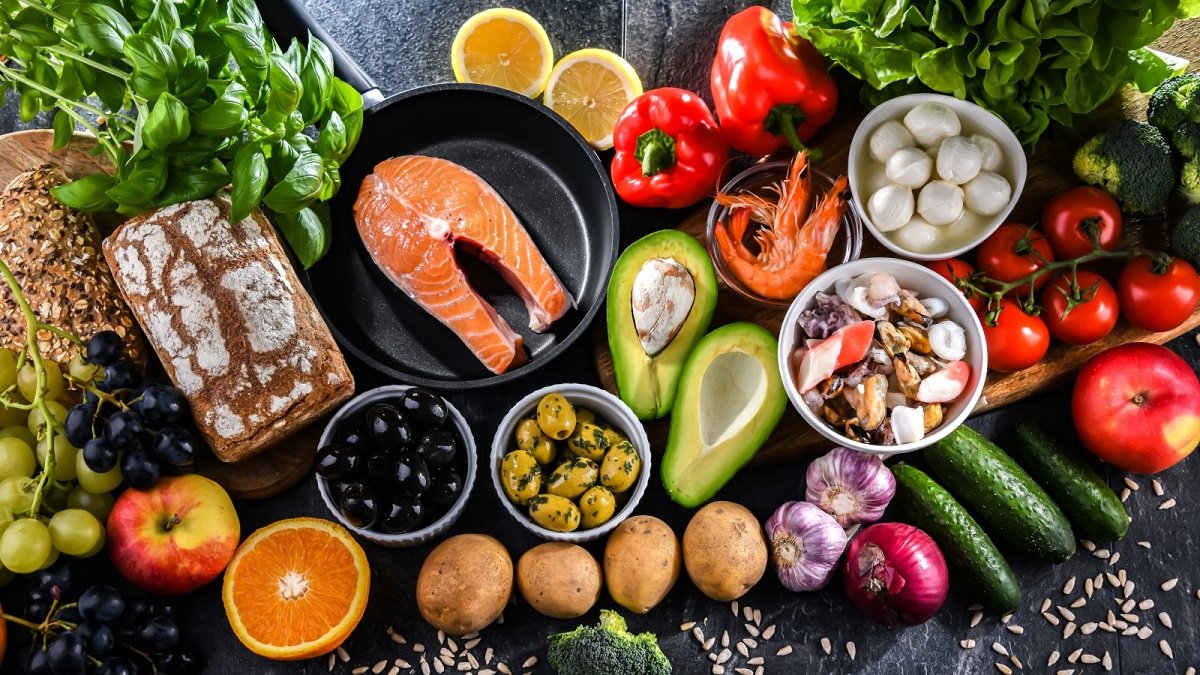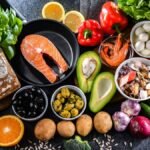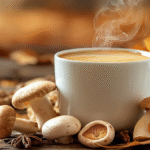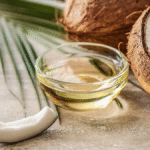An artist’s lifestyle can be emotionally and physically demanding. Managing the artist’s life’s pleasures and challenges requires excellent health. You probably know that a good, balanced diet with healthy foods that boost creativity is a key component of general health, regardless of whether you’ve just decided to put your health first or leading a healthy lifestyle is your “business as usual.”
The advantages of a well-balanced diet, however, are not limited to that. There are healthy, natural meals that can help strengthen your brain and keep you full of the energy you need to be your creative best, just as other processed foods may slow down your thinking and deplete your vitality.
Giving priority to meals high in certain nutrients, such as antioxidants, omega-3 fats, folate, and choline, may help maintain mental acuity and enhance memory and cognition. Similar to how automobiles use petrol, brains require fuel in the form of calories from food to power their bodies and minds. Better mood and mental health are also linked to eating meals high in nutrients that support the brain.
In addition, since these foods are not processed or manipulated by humans, they are often more environmentally friendly to consume. Understanding the cultivation methods and locations can significantly reduce your environmental impact. It’s the best way to benefit both the environment and yourself.
Foods That Will Boost Creativity
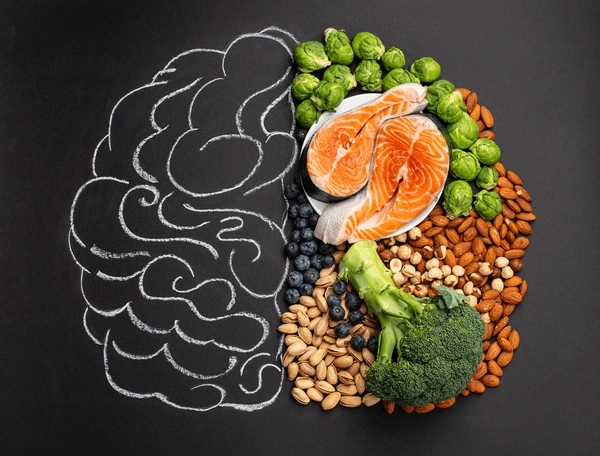
1. Berries
Berries, including strawberries, blackberries, and blueberries, are natural foods that contain some of the highest concentrations of antioxidants, which protect cells and enhance creativity. In particular, berries naturally contain flavonoids, a kind of antioxidant that promotes better memory.
Moreover, studies have shown that memory deterioration was lessened in older women who had two servings or more of blueberries or strawberries each week. While we don’t assert that consuming blueberries can enhance your memory during a performance, we also acknowledge the possibility.
In addition to their potential health benefits of preserving memory, blueberries also have the further advantage of being hydrating and refreshing on hot days! Like other food, organic berries are often available; however, we understand that this may be too costly for many.
2. Avocados & Bananas
Because of their oleic acid, avocados have long been linked to creativity. This interacts with our brain’s white matter, forming an insulating layer surrounding it that facilitates information flow. You ought to see a trend by now. Creativity is equivalent to foods that facilitate the flow of communication between cells.
Although bananas aren’t often associated with creativity, I’ve included them because, in my experience, eating two to three bananas every day helped me stay focused for a month while I worked exclusively on creating a creative book. Go figure, I also ended up including a monkey character in the story.
3. Fatty Fish
Fish is one of the most potent foods that fuel creativity, frequently overshadowed by the more obvious red meats and fowl at the grocery store. However, it’s crucial not to overlook its advantages. Fatty fish, such as salmon, sardines, tilapia, and cod, are especially high in omega-3 fatty acids, which have been found to benefit brain function.
These healthy fats have a significant role in increasing memory, learning, and general cognitive function, key components for activities like creative writing and music performance. The USDA suggests ingesting low-mercury fatty fish like salmon twice a week to gain the brain-boosting advantages.
Additionally, choosing responsibly caught seafood not only supports eco-friendly methods but also enhances your health. Sustainable fishing not only helps maintain marine ecosystems but also assures that you’re making a responsible decision for the world.
4. Green Vegetables
We’ve all heard that broccoli may induce flatulence, kale is a superfood, and Popeye famously ate spinach, but what’s even more intriguing is how all three of these leafy greens can improve our creativity. Each of these veggies has distinct health advantages that directly boost cognitive function and mental clarity.
Spinach is rich in iron, which is vital for oxygen delivery throughout the body, helping to keep your brain active and focused. Broccoli, filled with potassium and vitamin K, supports healthy brain function and promotes clear thinking, which is crucial for problem-solving and creativity.
Kale, frequently termed a superfood for its rich level of vitamins and antioxidants, assists in oxygen delivery, further fueling brain function. Regularly ingesting these green vegetables may aid in increasing mental sharpness, making them a fantastic complement to any diet geared at promoting creativity, whether you’re writing, brainstorming, or playing music.
5. Nuts & Seeds
Almost any nuts or seeds you pick up are healthy foods that boost creativity. They are one of the handiest snacks available and much preferable to grabbing a bag of chips or crisps. Almonds and walnuts, in particular, are particularly good for mental clarity and creative thinking, giving a firm basis for your brain health.
But when it comes to nuts and seeds with “superpowers,” sunflower seeds, chia seeds, and pumpkin seeds are among the top candidates. These seeds offer a punch of critical nutrients that improve cognitive function and attention. No matter what kind you pick, nuts and seeds are rich in proteins, healthy fats, vitamins A and E, and omega-3 and omega-6 fatty acids.
These nutrients work together to maintain brain health, boost mental concentration, and improve creativity. So whether you’re working on a writing assignment, brainstorming new ideas, or playing music, munching on a handful of nuts or seeds may offer your brain the fuel it needs to operate at its best.
6. Eggs
Eggs are sometimes termed “nature’s multivitamin” because of their outstanding nutritional composition, giving more health advantages than many other natural foods. Packed with critical elements, including protein, healthy fats, and vitamins, eggs give a well-rounded boost to your diet.
Research reveals that meals high in choline and folate, such as eggs, may considerably boost memory and cognitive function, making them particularly good for brain health. Furthermore, studies have indicated that the choline in eggs may help protect against neurological illnesses, including Alzheimer’s.
For the best nutritional benefit, strive to purchase sustainable eggs wherever feasible, opting for free-range, organic, and locally sourced kinds. If you’re enthusiastic about fresh, ethical food, you can even consider establishing your backyard egg farm—just be sure to check your local restrictions on raising chickens.
This way, you’ll not only enjoy the health advantages of eggs but also support more sustainable and compassionate production techniques.
Read More: 8 Superfoods For a Healthy Liver
7. Whole grains
Refined white bread and wholemeal bread vary greatly in their nutritional profiles and are one of the foods that fuel creativity. While refined white bread delivers rapid, short-term energy, wholemeal bread, derived from whole grains, provides a stable, prolonged supply of nourishment that may increase both brain function and creativity.
Whole grains are rich in vitamins, minerals, and fiber, all of which help you feel more energetic and intellectually alert throughout the day. If you consider creativity as a sort of vision, whole grains can help you see more clearly, not only physically but also intellectually, helping you to concentrate and think more creatively.
The B6 vitamins present in whole grains are especially crucial for strengthening short-term memory, attention, and brain cell viability, all of which assist in inspiring creativity and support good cognitive function. By selecting whole grains versus processed choices, you nourish your brain and eyes with the nutrients required to remain awake, focused, and creative.
8. Dark Chocolate
Alright, here is when sweet chocolate bars take the place of a nutritious diet, but proceed with care. It is true that sugar stimulates the creative process, but use caution. Sugar causes a decline in function, causing you to start a creative activity and then fall asleep in the midst of it or to have a ton of ideas at a meeting and then forget to write them down.
Choosing dark chocolate sparingly would be a wiser course of action. Simply because you spend most of your time on a low energy level and need a pick-me-up, refined sugar will make you less intelligent. Dark chocolate may increase your ability to solve problems creatively, which can make you smarter. Moreover, it contains antioxidants that help lower inflammation and anxiety and elevate your mood.
9. Coffee & Green Tea
The effects of caffeine-induced coffee or tea are comparable to those of dark chocolate. People have been using tea’s herbal and medicinal qualities for centuries. If you were to choose between tea and coffee for health-related reasons, tea would be the better option, especially green tea, which contains the chemical L-theanine, which is known to boost creativity and calm the brain.
However, there’s a reason why so many people depend on coffee to get through the day. In part, it’s addicting, and in part, it’s the adrenaline rush it provides—akin to a chemical train of thought that results in a brief but creative burst. Drink sparingly, as it’s likely to cause a crash.
Are There Any Supplements?
The final category of healthy foods that enhance creativity consists of vitamins that effectively increase your creative awareness. Let’s take a moment to be serious. When we think about supplements, we are thinking about whether we need help somewhere.
Supplements may be useful in this situation. Keep in mind that supplements complement a good diet, not replace it. Take one of these vitamins with meals that encourage creativity. Theobromine, which is present in chocolate, and L-theanine, which is found in green tea, are examples of foods that may also include specific chemicals that enhance creativity. These vitamins, however, are often available as tablets.
For thousands of years, Traditional Chinese Medicine (TCM) has used ginkgo biloba, a well-known herb that improves cognition. Because ginkgo lowers cortisol and high blood pressure, it helps people cope with stress and continue to think creatively. Additionally, it enhances general brain health and functioning and helps you remember things better, which is essential for creative thinking.
FAQ
Q: Does eating foster creativity?
A: Although the physical health benefits of food are well recognized, it is yet unknown how the multisensory experience of eating may affect sophisticated cognitive functions like creativity. All human senses may inspire creativity, as shown by an expanding collection of literature.
Q: What foods stimulate the brain?
A: Many foods that are beneficial for the brain, such as dark chocolate, almonds, seeds, and fatty fish, are also good for the heart. These meals may help decrease cholesterol, reduce inflammation, and enhance blood flow to the heart and brain since they are high in antioxidants, fiber, and healthy fats.
Q: Does a healthy diet improve cognitive function?
A: A balanced diet maintains and enhances brain function, according to growing evidence. It makes sense since we know that dietary decisions have an impact on cholesterol, blood pressure, and blood sugar. Any deviation from these levels may have negative effects on the brain and raise the risk of stroke, dementia, and cognitive decline.

